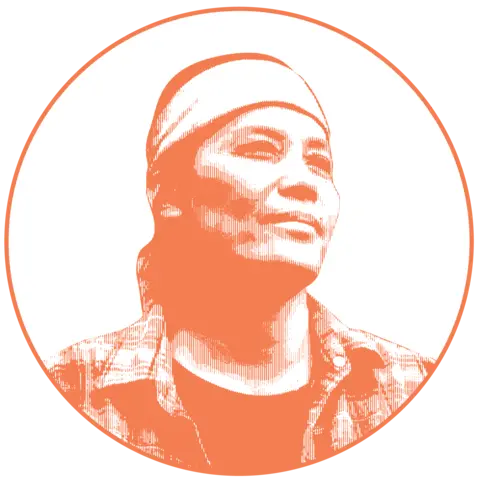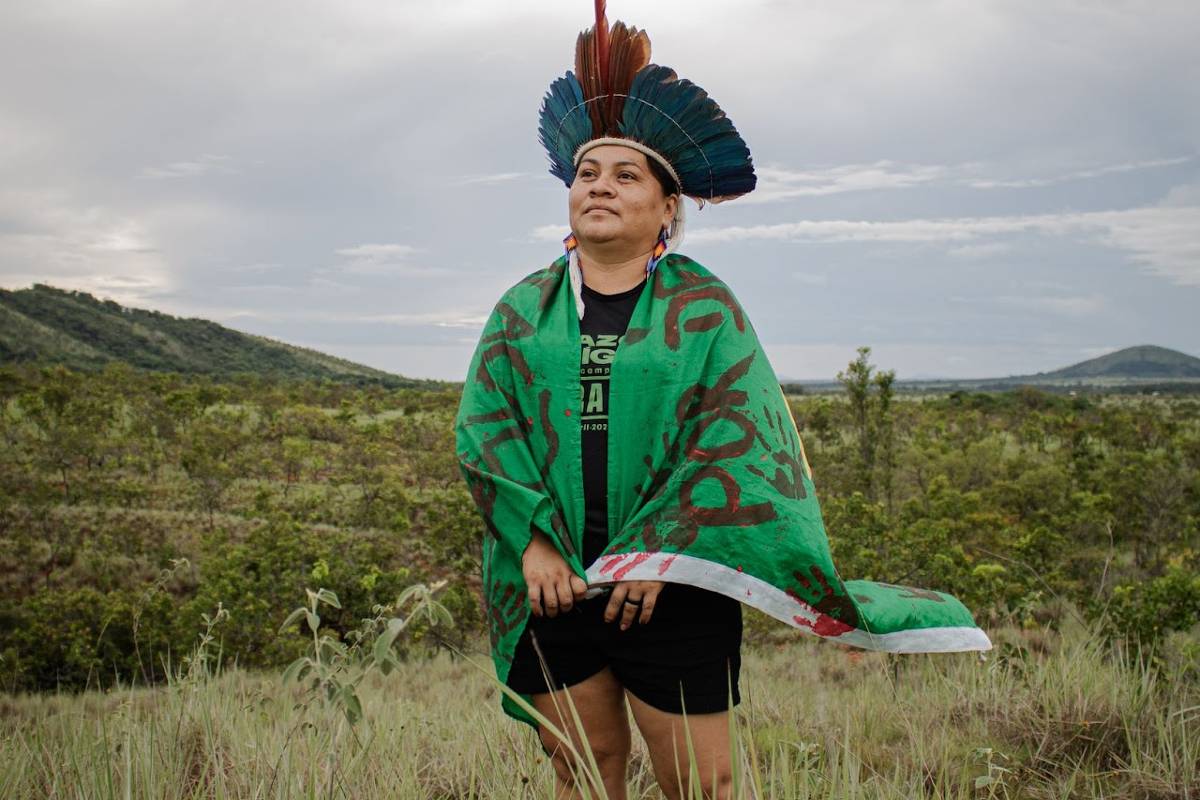This story excerpt was translated from Portuguese. To read the original story in full, visit Um só Planeta. You may also view the original story on the Rainforest Journalism Fund website. Our website is available in English, Spanish, bahasa Indonesia, French, and Portuguese.
/i.s3.glbimg.com/v1/AUTH_7d5b9b5029304d27b7ef8a7f28b4d70f/internal_photos/bs/2023/f/d/Gr0V8oTYqiXdzehAraOw/amanda-magnani-33.jpg)
In the future, the project also aims to develop a medicinal plant farm and nursery.
"This is the only project I know that started in practice, before going to paper", says Sabrina Nazareno, 24, who laughs as she recalls the origins of what is now the poultry project developed by the youth of the Canauanim community.
"First, we did the weeding, went to the bush to get wood to make the house, and only then did the project go to paper," adds her friend Duziene Cadete, 30, current local vice-coordinator of youth.
Under the shade of heavy mango trees, a few meters from the chicken coop they built with their own hands, four young people from Canauanim wait to present their project, Kyryky (chicken in the Wapichana language). In addition to Sabrina and Duziene, they are Hanklen Ribeiro, 19, and Júlio Augusto, the same age, the current local youth coordinator.
In the distance, conversations and laughter are heard. Around the wooden table where they are sitting, a dozen chickens of the most varied colors and sizes roam freely on the floor. From time to time, they peck at the insects they find along the way.

As a nonprofit journalism organization, we depend on your support to fund journalism covering underreported issues around the world. Donate any amount today to become a Pulitzer Center Champion and receive exclusive benefits!
The Canauanim community is located in the Indigenous Land (TI) of the same name, in the Serra da Lua region, in Roraima. Demarcated in 1996, the TI has an area of 11,000 hectares and a population of almost 1,500 inhabitants.
The Kyryky project began in 2020, on the initiative of the then-coordinator Hilton Cadete, Duziene's brother. Inspired by activities carried out by young people in other regions, Hilton mobilized the youth of Canauanim and sought the necessary resources to make the project a reality. The choice to raise chickens came from the understanding that poultry management would be more accessible than other initiatives.
/i.s3.glbimg.com/v1/AUTH_7d5b9b5029304d27b7ef8a7f28b4d70f/internal_photos/bs/2023/r/s/pwJsCGSYGyWLlethAUUQ/amanda-magnani-36.jpg)
/i.s3.glbimg.com/v1/AUTH_7d5b9b5029304d27b7ef8a7f28b4d70f/internal_photos/bs/2023/r/O/DhLdmCQpevalBk4VaZEw/amanda-magnani-34.jpg)
/i.s3.glbimg.com/v1/AUTH_7d5b9b5029304d27b7ef8a7f28b4d70f/internal_photos/bs/2023/a/Z/aSK5zhQ9qK93grFX7WRA/amanda-magnani-35.jpg)
/i.s3.glbimg.com/v1/AUTH_7d5b9b5029304d27b7ef8a7f28b4d70f/internal_photos/bs/2023/W/j/4Ne4tHTYaS09b7B1Ythw/amanda-magnani-37.jpg)



